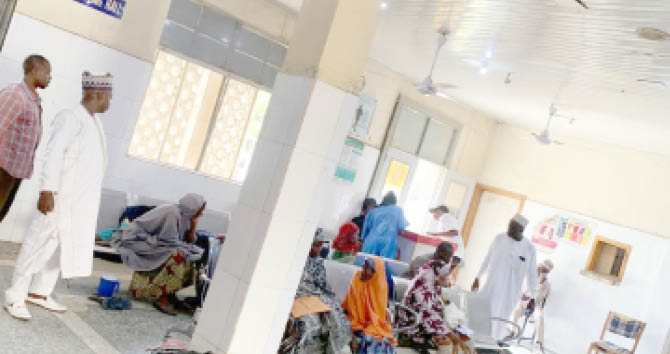Key stakeholders in the health sector have said that collaboration between the National Primary Health Care Development Agency (NPHCDA), Civil Society Organizations (CSOs) and other non-state actors is crucial for the attainment if Universal Health Coverage (UHC) and implementation of effective primary health care service delivery in Nigeria.
They stated this Friday in Abuja during the strategic stakeholders engagement meeting organized by the UHC Forum, and NPHCDA, with the support of Options Consultancy Services.
The meeting was themed ” Harnessing multi- stakeholder approaches to strengthening PHC delivery and accountability.”
Dr Muyi Aina, executive director of the NPHCDA, said CSOs have critical roles to play in the implementation of the NPHCDA strategy.
- How Azman again indefinitely suspended operation
- Benue govt blocks APC secretariat with road construction amid planned meeting
Aina said the maternal health indices in the country was unacceptable and that while some progress have been made on improving outcomes, the movement towards it has been slow.
He further said one of the organization’s theory of change towards addressing the country’s poor maternal mortality ratio is a midwifery led approach to crash maternal ,neonatal mortality outcomes in the next two to three years .
He also said one of the organization ‘s strategy towards addressing gaps in service delivery is to redesign the community health program.
He said: “We cannot achieve UHC goal of making quality basic health services accessible for All Nigerians without an effective community health program.
“PHC revitalization unlikely to reach 100% of Nigerians if there continue to be gaps in service provision. Hence there is a need to build a strong health community.”
He enjoined the stakeholders to align with the federal government’s Sector-Wide Approach (SWAp), saying it was key to tackling maternal and child mortality, and out of pocket expenditure.
Dr Ufuoma Festus Omo-Obi, Regional Director, West & Central Africa, Options Consultancy Services, said the engagement was an attempt to bring stakeholders together, because they believe that everyone within the health ecosystem could contribute to the objective of achieving UHC.
“That is what informed this conversation. How can we harmonize? How can we bring all stakeholders across the divide, together harness the synergies and strengths to advance UHC.
“How to move the agenda from just the policy at the center to real outcomes in terms of saving lives; women not dying, and children not dying,” he said.
He said the Evidence for Action (E4A-MamaYe) programmes is one of the examples of how government, civil society and other stakeholders have collaborated to address health challenges.
Dr Gafar Alawode of the UHC forum said the engagement had helped to improve understanding on how NPHCDA would be working with the stakeholders to avoid unnecessary duplication of efforts.
He said there was also some understanding of what stakeholders needed to do in terms of how to handle the local government autonomy as it affects the primary health care system.
He said: “At this point, there seems to be some divergence views but what came out clearly is that we need to do a policy analysis of this health care financial autonomy.
“So that we know what the issues are and make informed decisions. What also came out out clearly as well is that everybody should be involved, from the grassroot to the national level. And be able to go to their various facilities to monitor what is happening.
“Another important information is that NPHCDA is coming up with a dashboard on the PHC performance at the various facilities. All stakeholders will be able to interact with that dashboard to know what is happening in their community.”

 Join Daily Trust WhatsApp Community For Quick Access To News and Happenings Around You.
Join Daily Trust WhatsApp Community For Quick Access To News and Happenings Around You.


